Just one great thing about the Porsche 911 is that there really is a variant for everyone. Even beyond the GT3, GT3 Touring, and GT3 RS, you still have 20 more trims to choose from, ranging from the base Carrera coupe all the way up to the bonkers and breezy Turbo S Cabriolet. Take off the GT trims though, and you have two that everyone are talking about: The 911 Carrera T and the 911 Carrera GTS T-Hybrid.
One looks to the past with a six-speed manual being the only transmission, while one looks to the future with hybridization. One’s focused on keeping things light, while one aims to be the driver’s choice Goldilocks sports car of the range. Both come as standard with loads of performance kit, but which one should you spend your hard-earned money on. As luck would have it, I ended up in the stick-shift Porsche 911 Carrera T and the hybridized Porsche 911 Carrera GTS without a press car in between, so let’s break out the drive notes and get cracking.
[Full disclosure: Porsche Canada let me borrow the 911 Carrera T and the 911 Carrera GTS each for a week so long as I kept the shiny sides up, returned them with a full tank of 93-octane fuel, and reviewed them.]
Common Threads
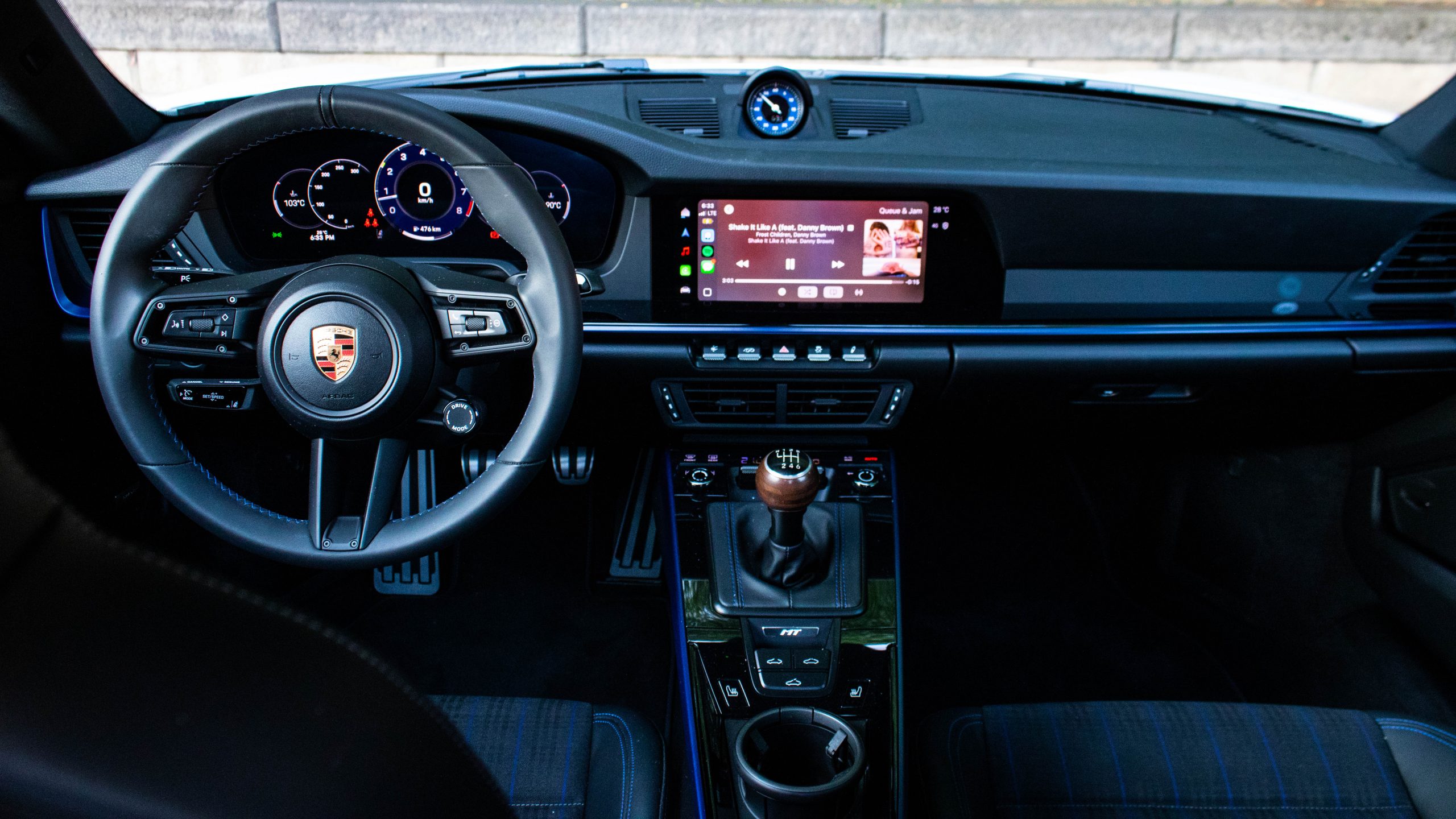
No matter which 911 you choose, you’re still getting more-or-less the same cabin. Sure, the Carrera T starts off with a vinyl dash pad and subtle plaid cloth versus the GTS’ more luxurious appointments, but otherwise, expect familiarity. While much has already been said about the digital gauge cluster and the start button instead of a faux-key, they both add functionality like actually seeing all five dials and having the climate control kick on as soon as you get in and shut the door. Nice. Less nice is the modest interior storage for small items. The space under the center armrest is taken up almost entirely by a wireless phone charger and the door bins are fairly shallow, so you’ll really be leaning on the optional storage net on the passenger side of the tunnel.
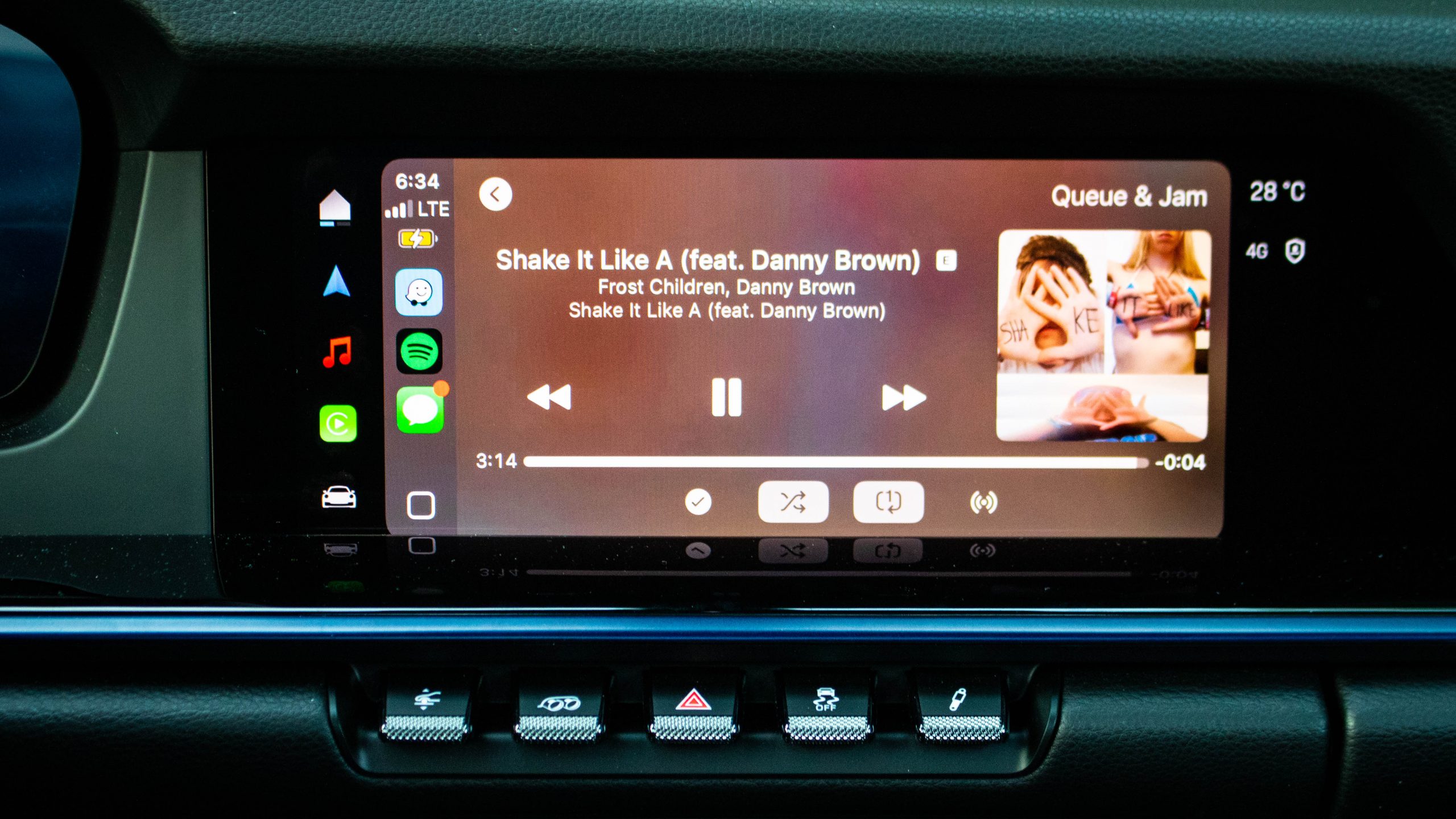
In an era when in-car tech is getting ridiculous, it’s freeing to experience an absolutely foolproof infotainment system. The top-level tiles on the driver’s edge of the screen for functions like Apple CarPlay and customizing drive modes are hugely helpful and you never have to go through more than two menus for anything. As a bonus, you can turn off data transmission at the start of every drive, an important touch considering how much of drivers’ data new cars capture.
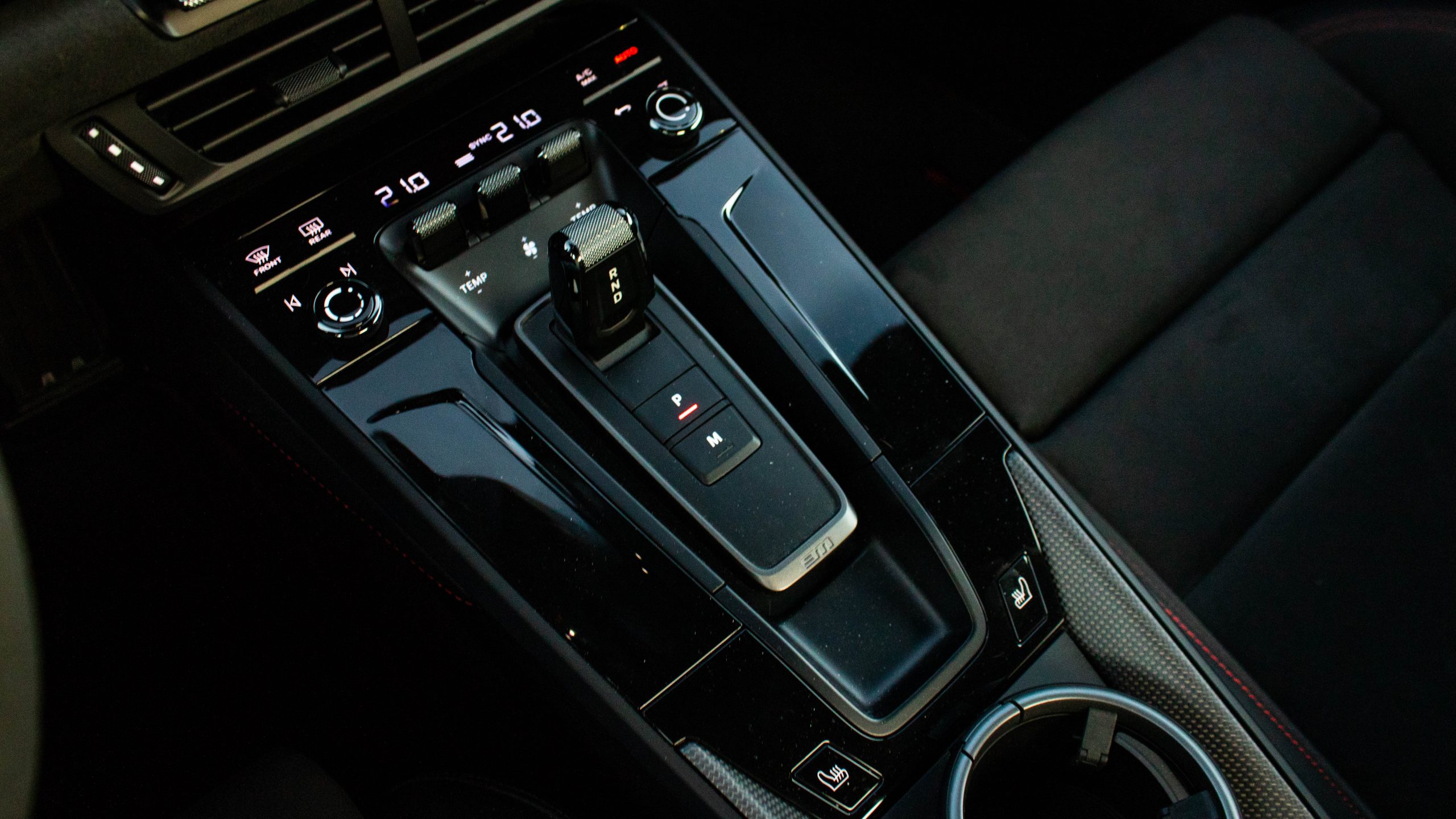
Speaking of infotainment, the current 911 has a superb balance of stuff that’s virtual versus stuff that gets proper secondary controls. I wish the seek buttons on the console were physical, but otherwise, you get a proper climate control panel, real knobs for the sound system and infotainment, and hard buttons for the stuff you’ll want to use on the regular like the optional nose lift or the standard-on-the-T sports exhaust. Oh, and I have to give a shoutout to the sport seats. While the optional 18-way power chairs are just about the best seats on the planet, even the base four-way power sports seats offer the right blend of bolstering and comfort.
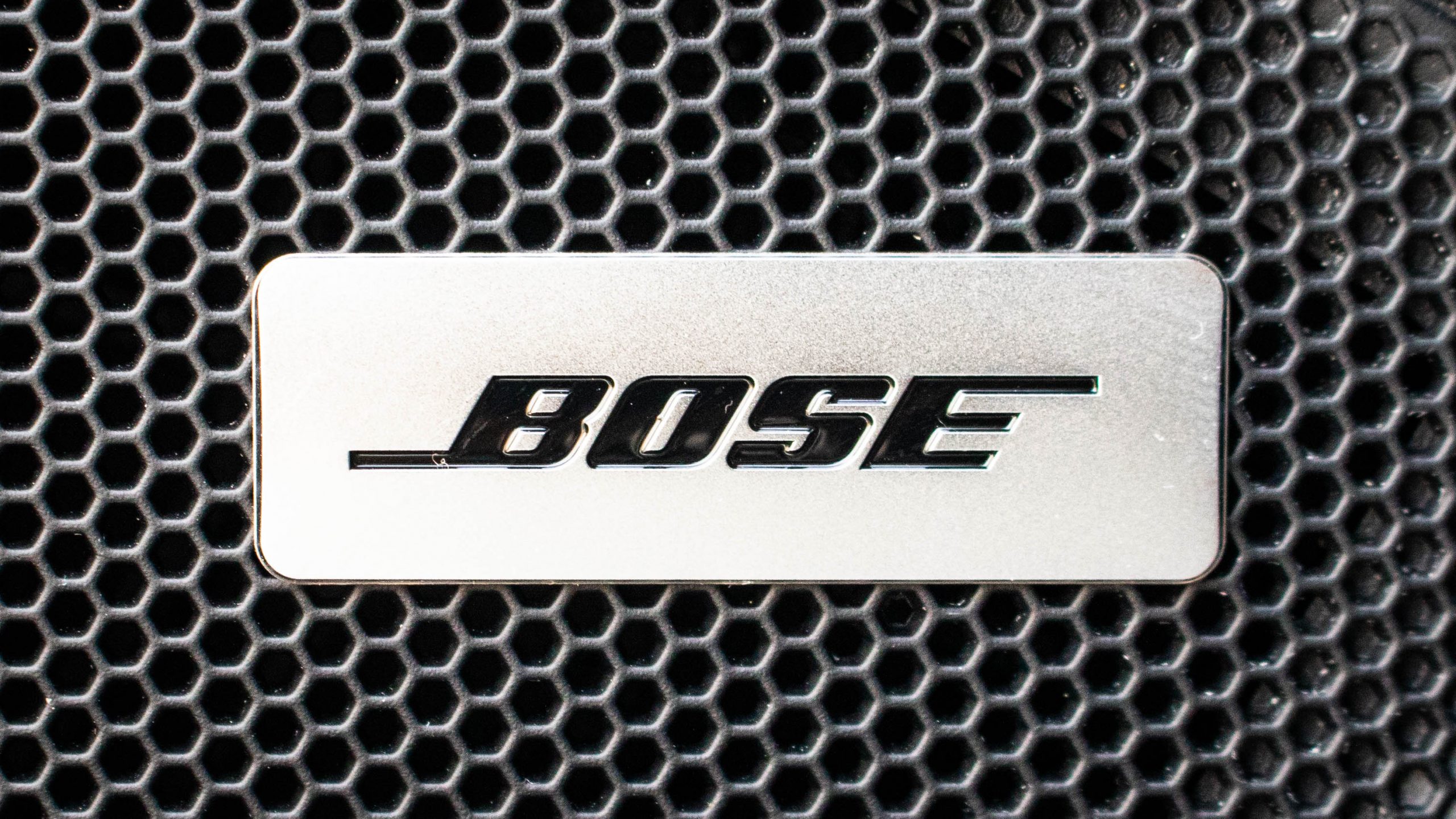
Both of my test cars came equipped with the optional Bose sound system, and it’s fine, if not outstanding. Sub-bass is a bit disembodied and clarity is acceptable, but it’s probably worth ticking the box for Burmester if you really love your tunes. That being said, the Bose setup is good enough for most people, so if you try it and you’re happy with it, all the power to you. Besides, there are more important decisions to make here than how far you want to go with factory audio.
Stick With It

Pop the engine cover of the 911 Carrera T and you’ll see a few fans, places to fill select fluids, and that’s about it. However, underneath those fans sits a boosted three-liter flat-six that, thanks in part to turbochargers off the old 911 Carrera GTS, pumps out 388 horsepower and 331 lb.-ft. of torque. Not earth-shattering figures, nor is a zero-to-60 MPH time just north of four seconds, but there are two things worth keeping in mind here. The first is a curb weight of 3,316 pounds, or a tad less than a Subaru WRX. The second is that speed limits exist in the real world. The fact is, this is enough power to be exploitable without worrying about going to jail. Sure, that means you’ll be short-shifting out of third, but with power peaking at 6,500 rpm, there’s joy in the repetition of hand-made shifts.
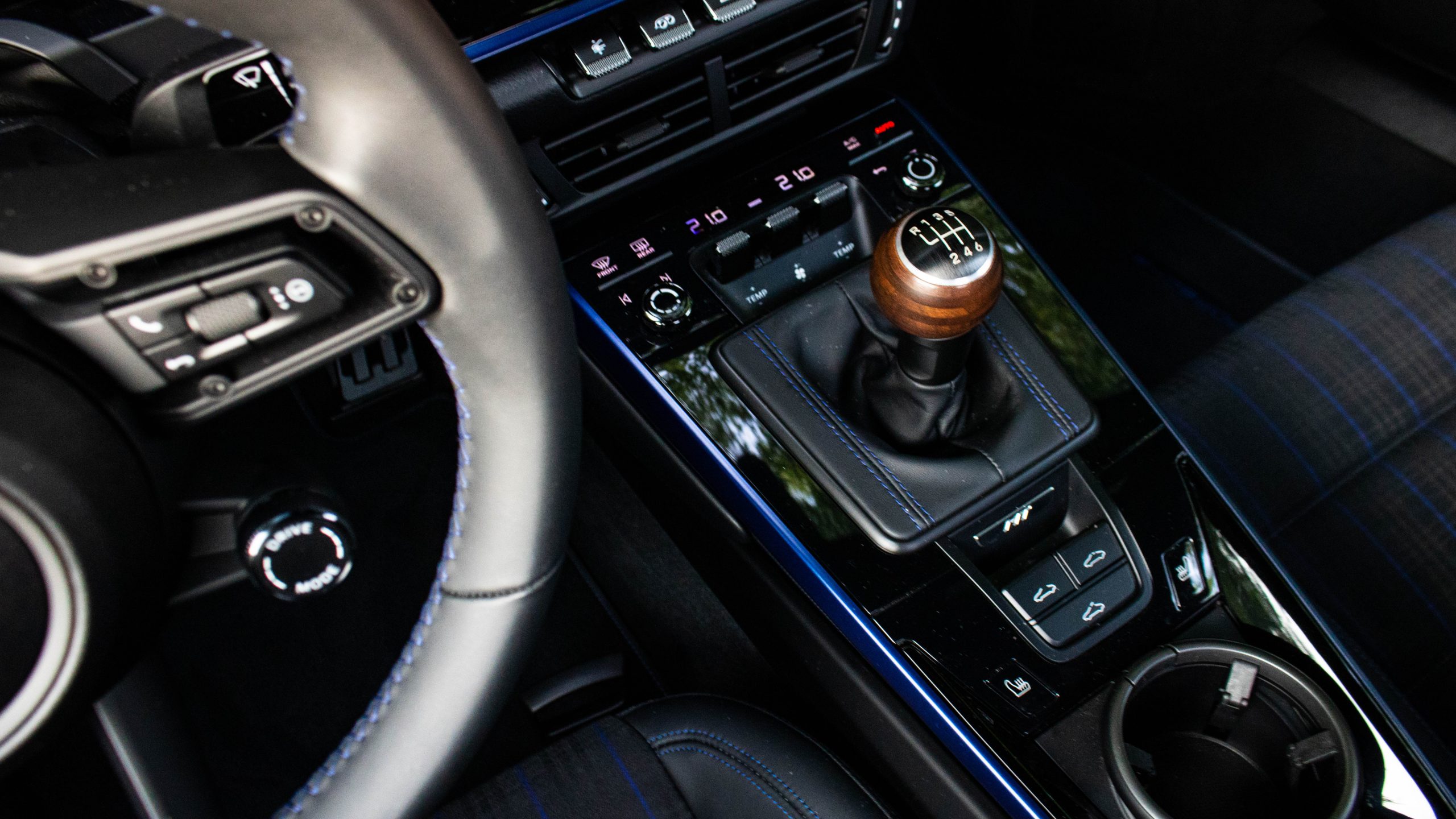
Short of the GT3, the 911 Carrera T is now your only way to get a proper manual gearbox in a new 911, one with six forward ratios and one that lets you go backwards. However, don’t think that it uses the same six-speed manual as the GT3. Instead, it features a seven-speed converted PDK that’s ditched its seventh ratio because it’s largely pointless. Sixth keeps the engine speed in a happier range for casual freeway overtaking, and deleting a gear means the Carrera T can take advantage of the GT3’s shift tower, then top it with a delightful wooden knob as a nod to the 917 race car. It serves up smooth yet positive action through reasonably wide-set gates, an almost ball-bearing glide as you feel the resistance of the shifter cables.
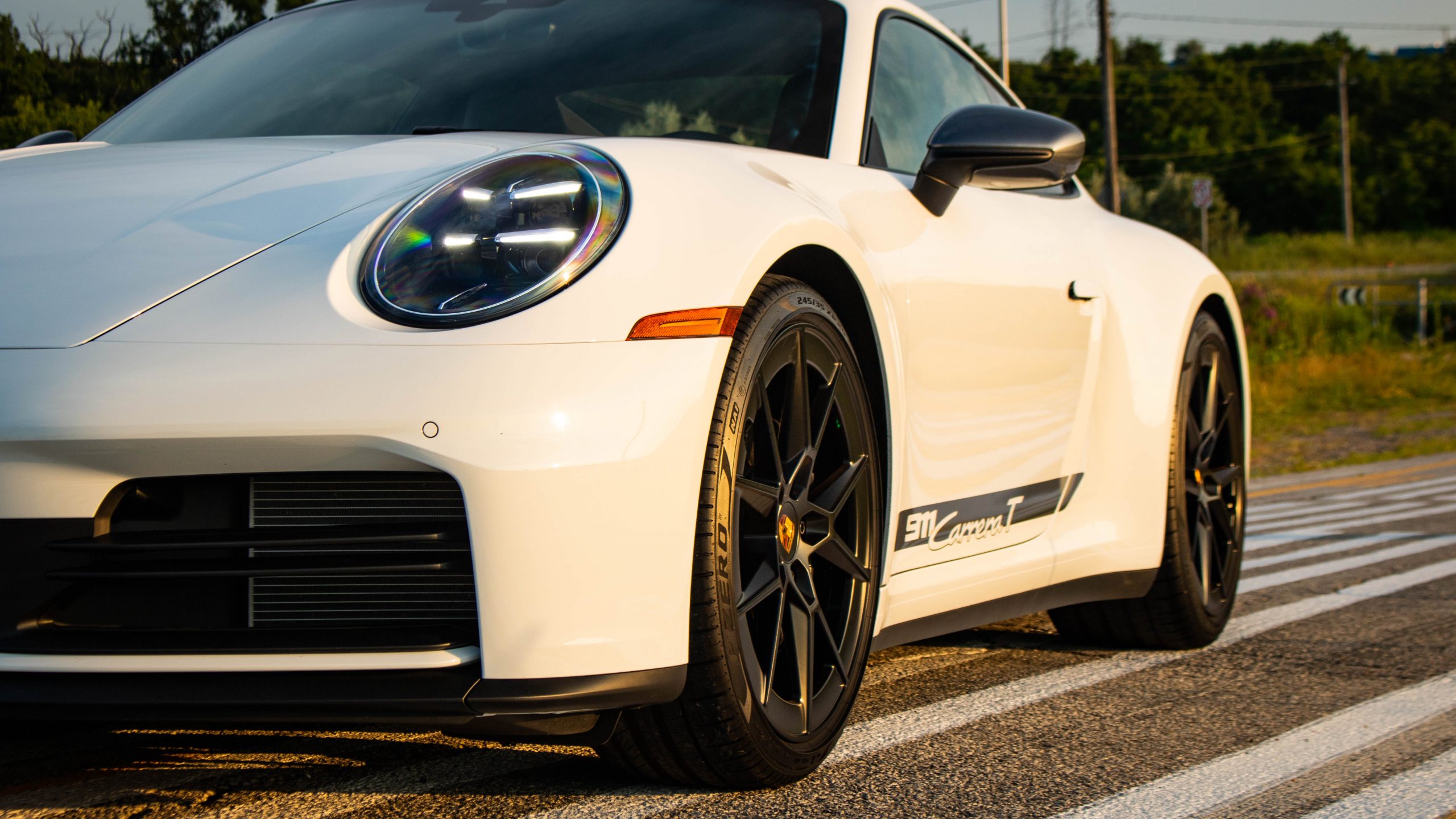
Point the 911 Carrera T towards an apex, and it’s textbook Porsche in the best way possible. Epoxied down with firm damping and stellar body control, yet still nimble enough to let you know that you’re in control of a scalpel, an instrument that can carve corners with precision but requires some skill to hold. The rear-engined layout means you have bathtubs of corner-exit grip, and the 911 has long since tamed the lift-off oversteer early air-cooled models are known for, so much of the cornering experience is both enjoying the nuance of beautifully weighted steering and a feathery feeling for the car’s footprint, and working on yourself. The Carrera T wants you to be a better driver, but it doesn’t want to punish you. That’s a rare combination this far north on the performance echelon from, say, a Miata.
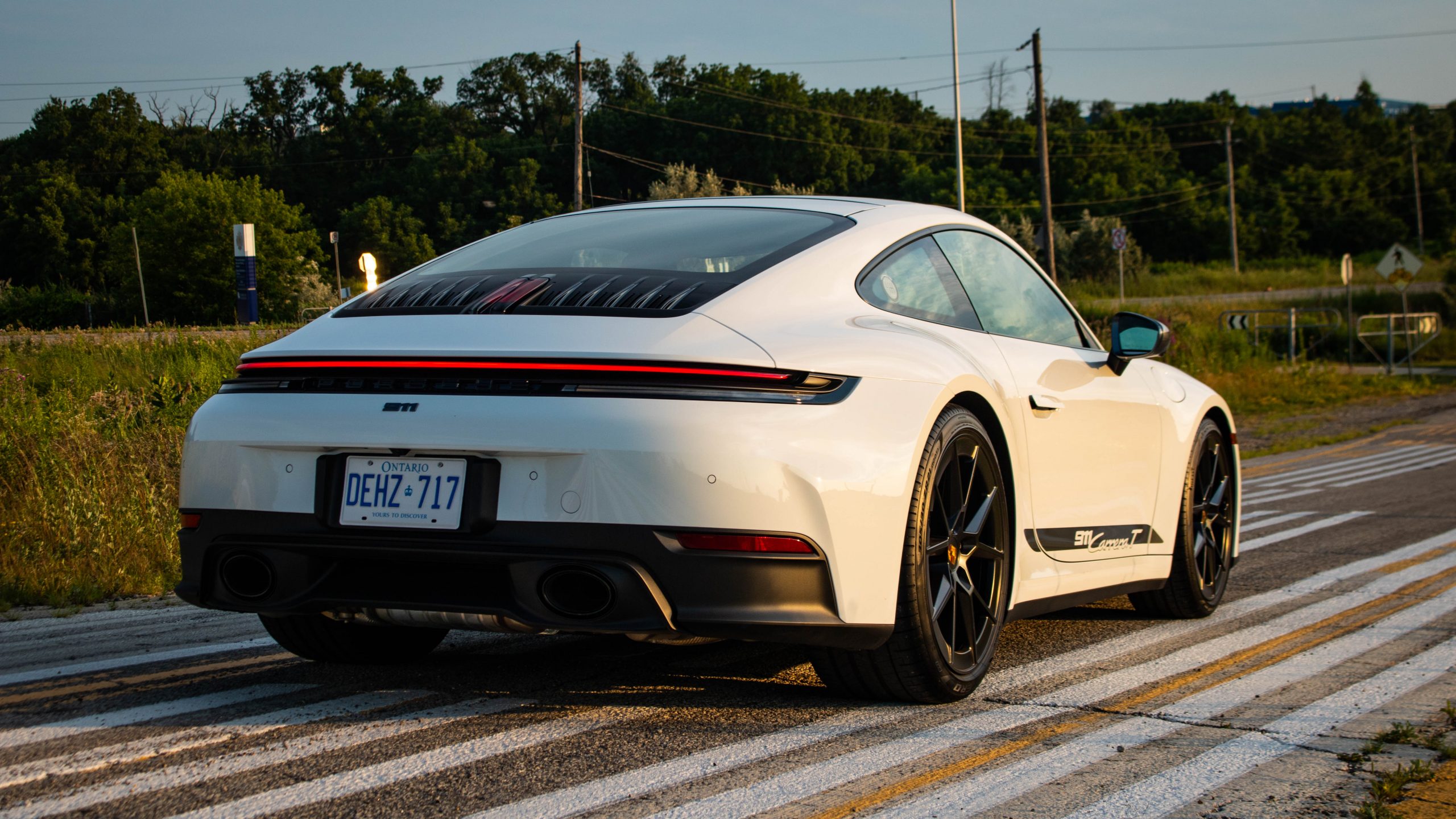
Downsides? Well, there’s a fair amount of road noise from the thinned-out glass and Marie Kondo’d sound deadening, and the ride on the sports suspension isn’t exactly subtle, but the only thing really holding the 911 back is its size. Between the pinched greenhouse, the wide fenders, and a sense that the mirrors were really meant to be aspheric, it’s hard not to get the feeling that the Porsche’s poster car has grown awfully big over the years. Climb into a 996 or even a 718 after driving a 992, and you’ll feel like you’re performing the Kessel Run in an Onitsuka Tiger, laced up tight enough to keep you feeling snug. There’s something decidedly sports car about such intimate dimensions, and the 911 doesn’t quite feel as svelte as it used to. Oh, and the four-wheel-steering takes some getting used to at low speeds.
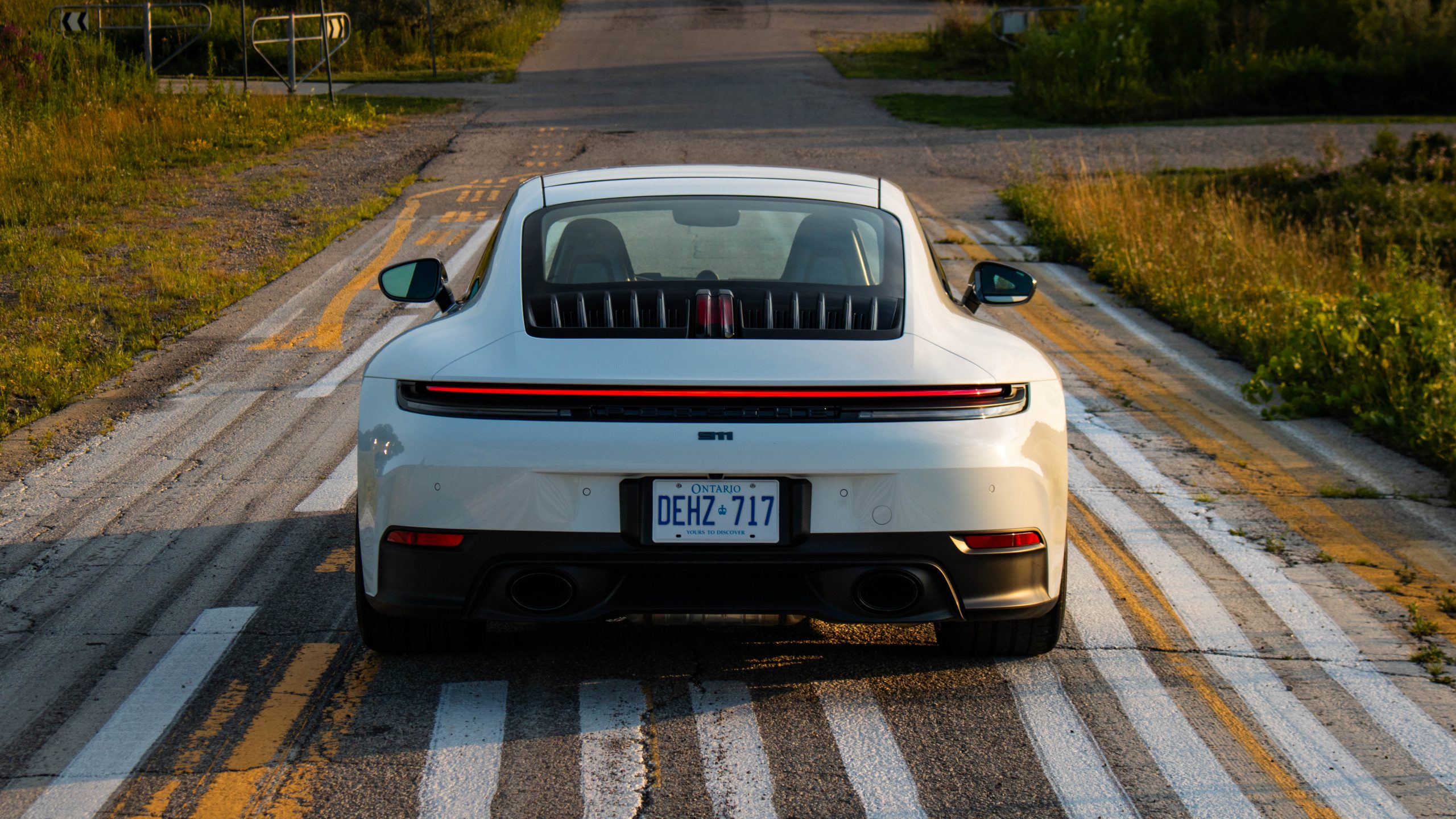
Still, after a week and several hundred miles in the Carrera T, it feels like exactly as much new 911 as anyone without an FIA Silver licence needs. Just scrape the shift pattern decals off the quarter windows, order it without the stripes, and skip the shift pattern-themed puddle lights, and it’s perfect. So what happens when you drop a pedal and kick things up two notches?
Hybrid Theory
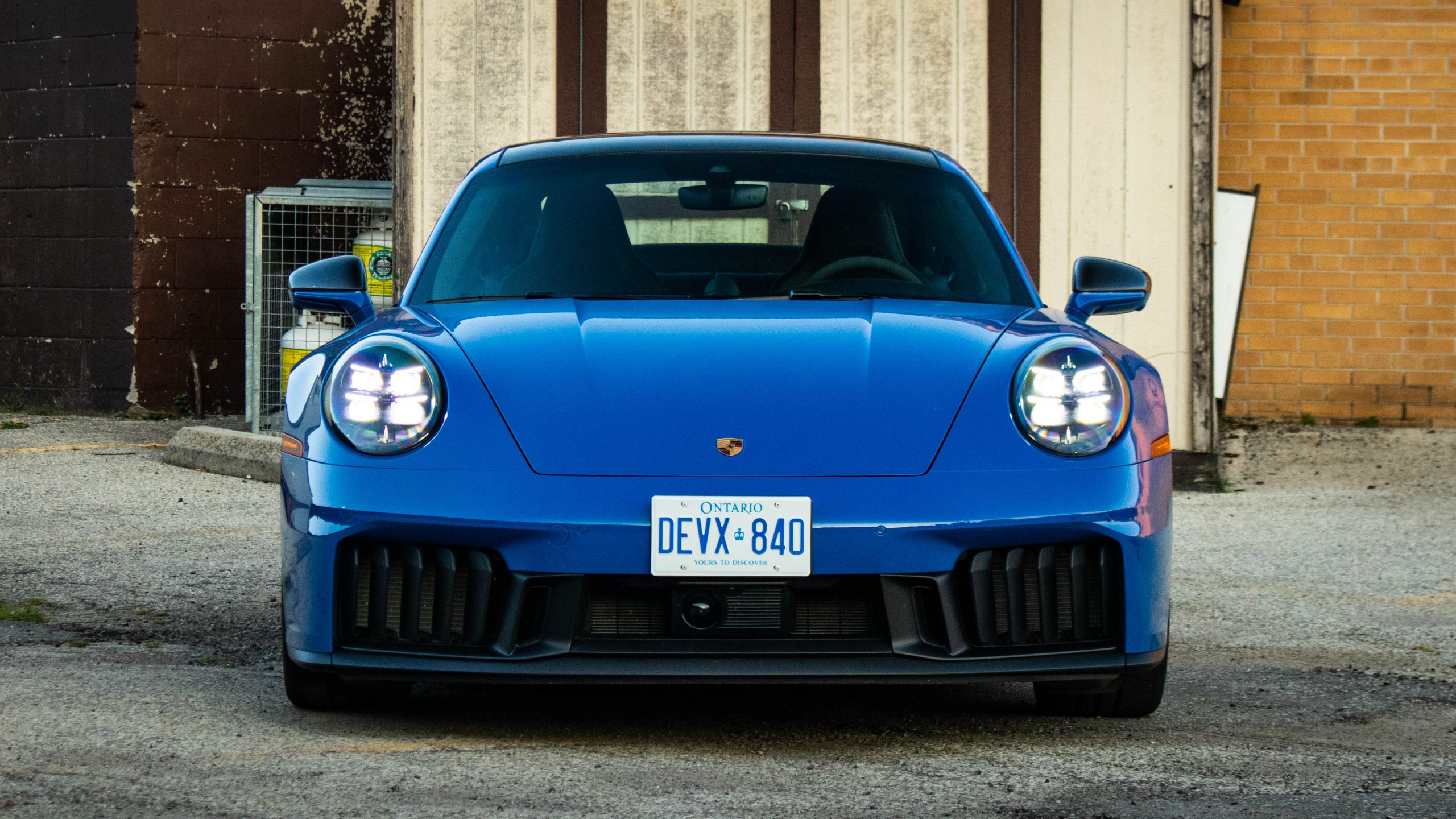
Well, if you’re the sort who enjoys a horizon being fired towards your retinas, the pace of the 911 Carrera GTS T-Hybrid is sure to excite. Even without four-wheel-drive, the combination of a dual-clutch automatic and a majority of the car’s weight over the rear tires means Porsche’s official zero-to-60 mph time of 2.9 seconds likely involves some sandbagging. Deduct rollout like all the big magazines do, and you’re looking at a violent enough shove to hit 60 mph in the mid-twos. Savage, wrinkle-cream acceleration like that used to be hypercar stuff, now you don’t even have to step up to a 911 Turbo for it.
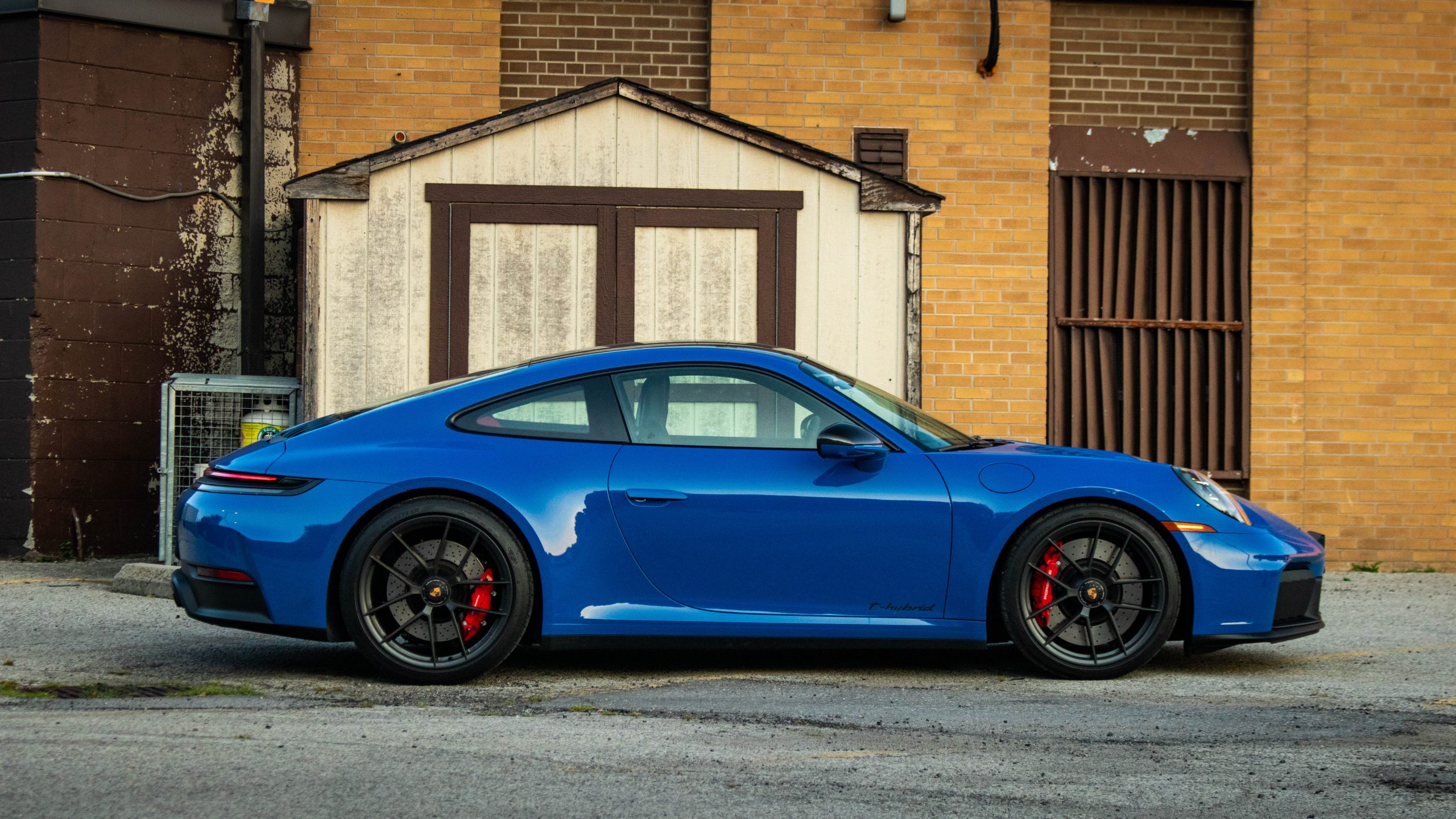
Speaking of turbochargers, the powertrain in the 911 Carrera GTS T-Hybrid isn’t just unique because it’s hybridized. The 3.6-liter flat-six doesn’t share a displacement with any other 911 model, and electric motors in the bellhousing and single turbocharger aren’t there primarily for economy. The electric torque-fill is so brilliantly done that, when combined with the bump in displacement and the clever lag-reducing electrified turbocharger, the 911 Carrera GTS almost feels like it has a big naturally aspirated engine. Sure, there’s a bit of noticeable lag at times, but with 532 horsepower and 449 lb.-ft. of torque, when this thing’s on song, you’re gone. This powertrain makes a strong noise too, an rip-snorting buzz saw with the sort of togetherness you’d expect from the effective exhaust merge produced by a single turbocharger.
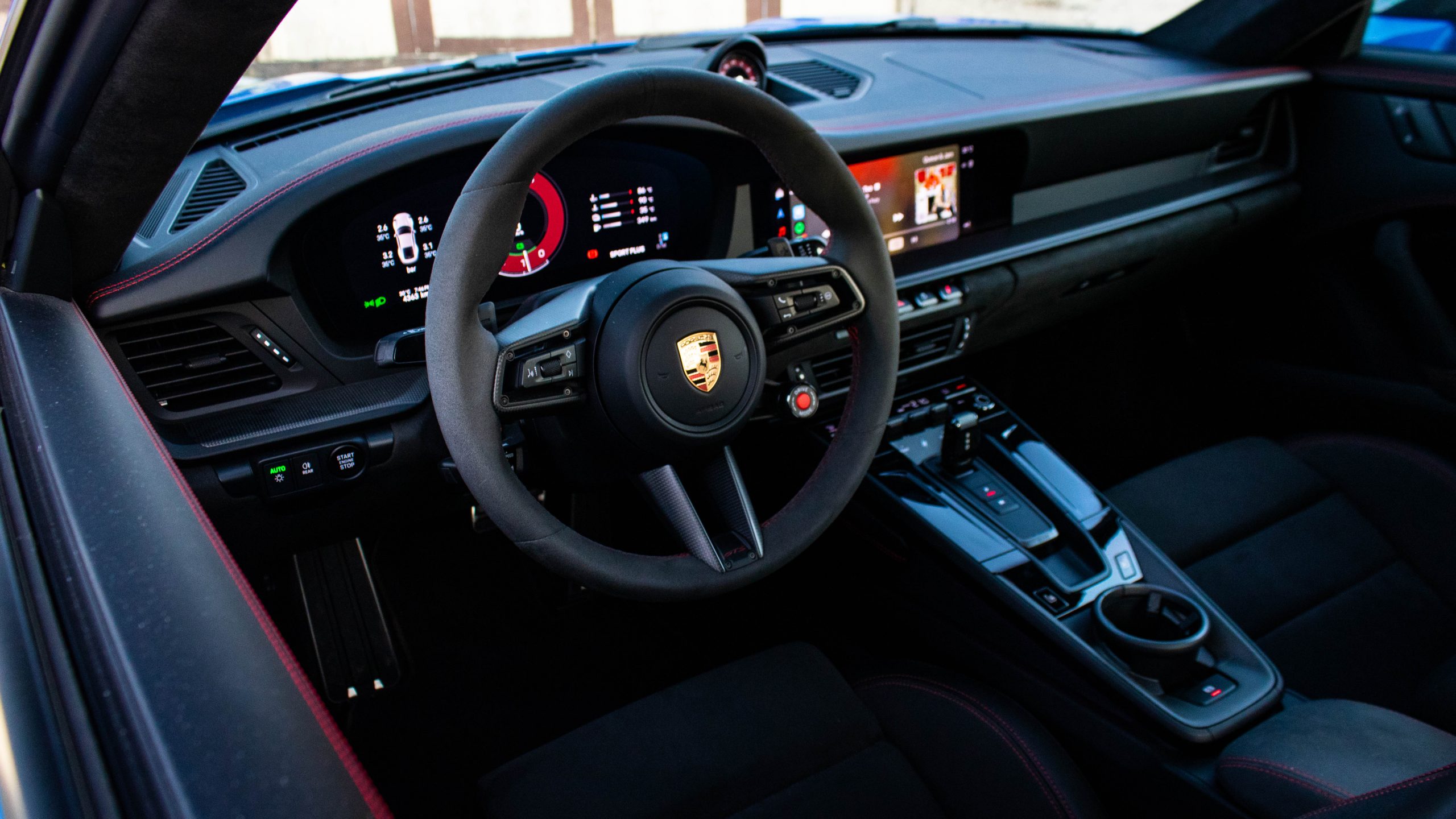
However, while the 911 Carrera GTS T-Hybrid gives abundant pace, it also dulls things a touch compared to the Carrera T, starting with a sense of density. The GTS weighs 220 pounds more than the Carrera T and even though some of that delta has been skewed by the metal sunroof on my Carrera T tester and the carbon roof and 18-way seats on my GTS tester, the GTS does feel like it’s carrying another human worth of weight aboard. Even beyond the settled nature of the Goodyears on this car versus the eager Pirellis on the Carrera T, you feel the extra weight both in the bends and under braking. Granted, the suspension tune does a great job of minimizing pitch and lean, but inputs feel a bit more deliberate than in the 911 Carrera T.
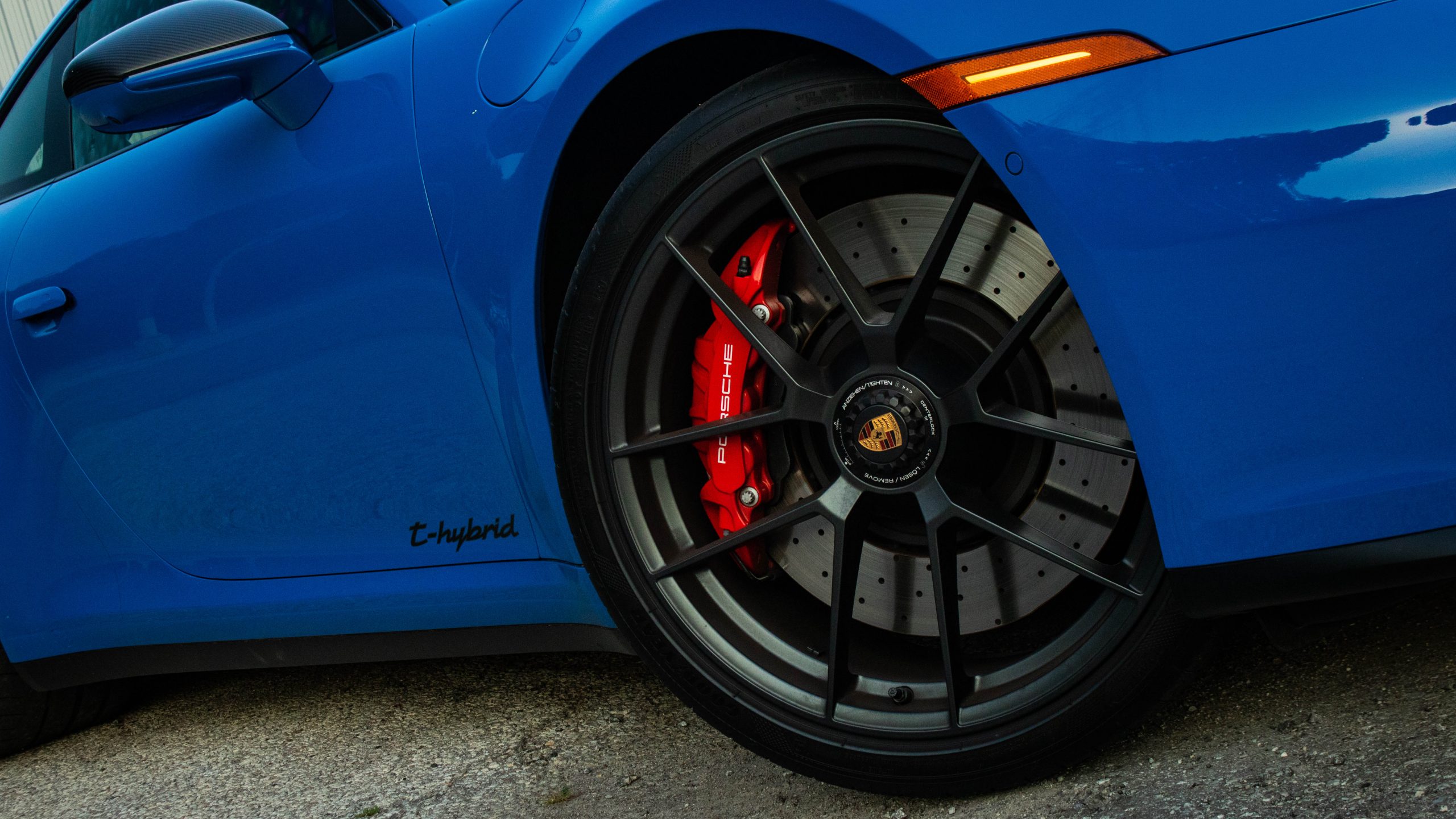
Speaking of the brakes, Porsches are known for having confident, progressive bite right from the top of the pedal, but the GTS T-Hybrid just hasn’t picked up that genetic trait. The brake blending feels unfinished, experienced as spongy initial response from higher speeds and feeling like you’ve stepped on cotton candy when braking lightly from low speeds. It’s a tad unnerving in city driving, and one area where the hybridized 911 could genuinely use some improvement.
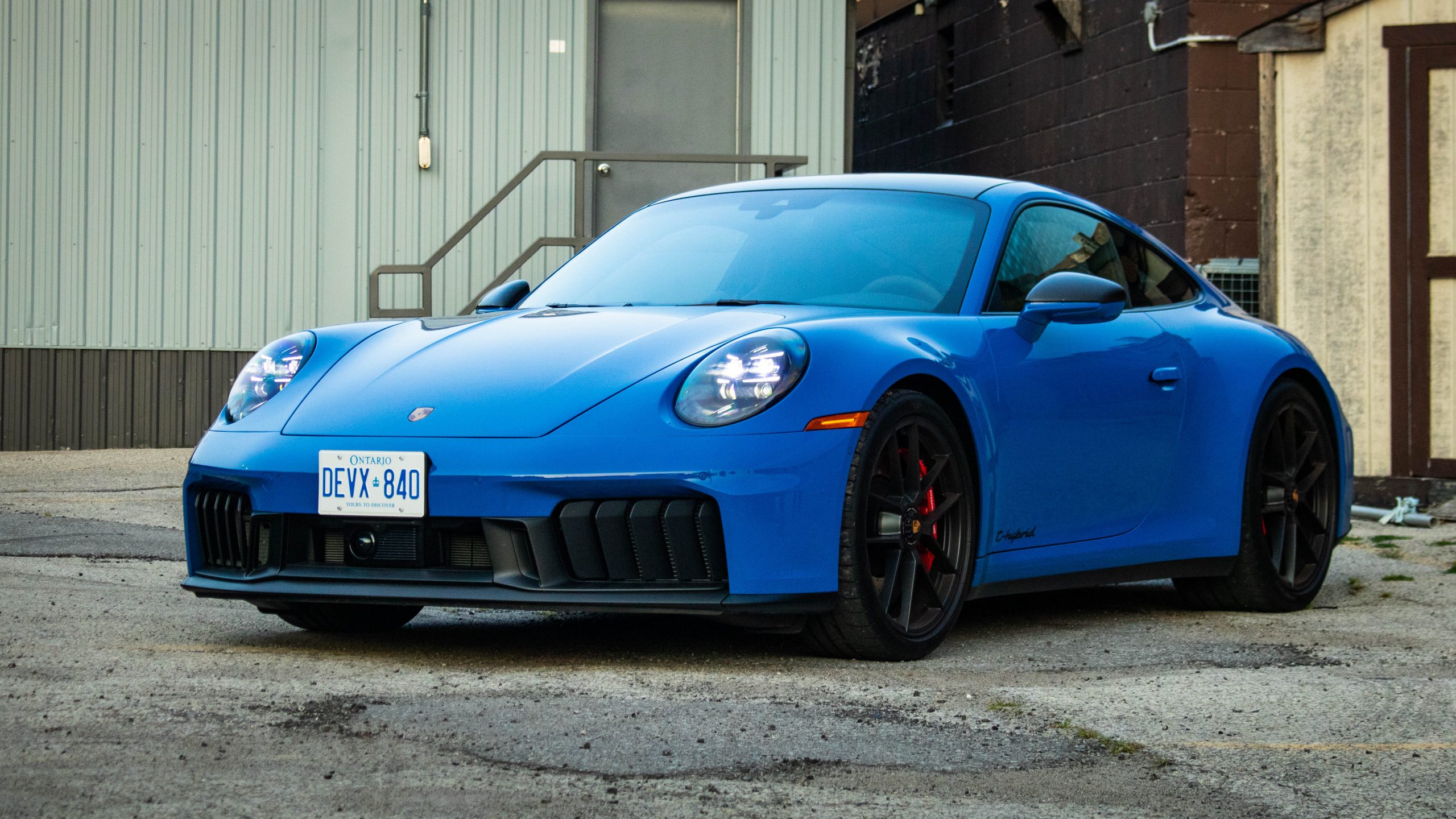
However, once you get past that initial squidginess, the marvel of the Porsche 911 Carrera GTS T-Hybrid is how usable it is as a normal car. The eight-speed PDK dual-clutch makes slogging through traffic jams easy, the hybrid system makes stop-start utterly seamless, and you still get all the interior and frunk space of a normal 911.
Decisions, Decisions

What we have here are two iconic sports cars that are slightly different. Both look like the shape you fell in love with as a teenager, either will accommodate three adults, a small dog, a backpack, three pizzas, some soup, two guava Jarritos, and a bit of camera gear all at the same time, and no matter which one you buy, your neighbours will talk about it. So, which one would I rather take home? The one that’s more of an occasion, of course.

It’s no secret that electrification has democratized speed. These days, you can walk into a Hyundai dealership and bring home an electric crossover that can outrun a Ferrari 458 Italia in a straight line. Some of the quickest production cars on sale are four-door sedans that don’t burn a drop of gasoline, and that’s given a louder voice to enthusiasts seeking experiences. Tactile steering, light weight, amazing brake pedal feel, the sort of stuff that doesn’t necessarily show up as obvious factors in performance testing. The Porsche 911 GTS T-Hybrid offers astounding speed and liveability, but the 911 Carrera T is a more involving experience.

It’s lighter, simpler, quick enough to feel fast but no so quick as to be virtually unusable without a traffic lawyer on speed dial. Its lateral responses are a bit more immediate, its brake pedal feels like you’re stamping the foot of God into the tarmac, and the manual gearbox adds an extra layer of drama. There’s something theatrical about moving a big lever into third instead of flicking a paddle, something ingrained in our DNA after centuries of simple machines.
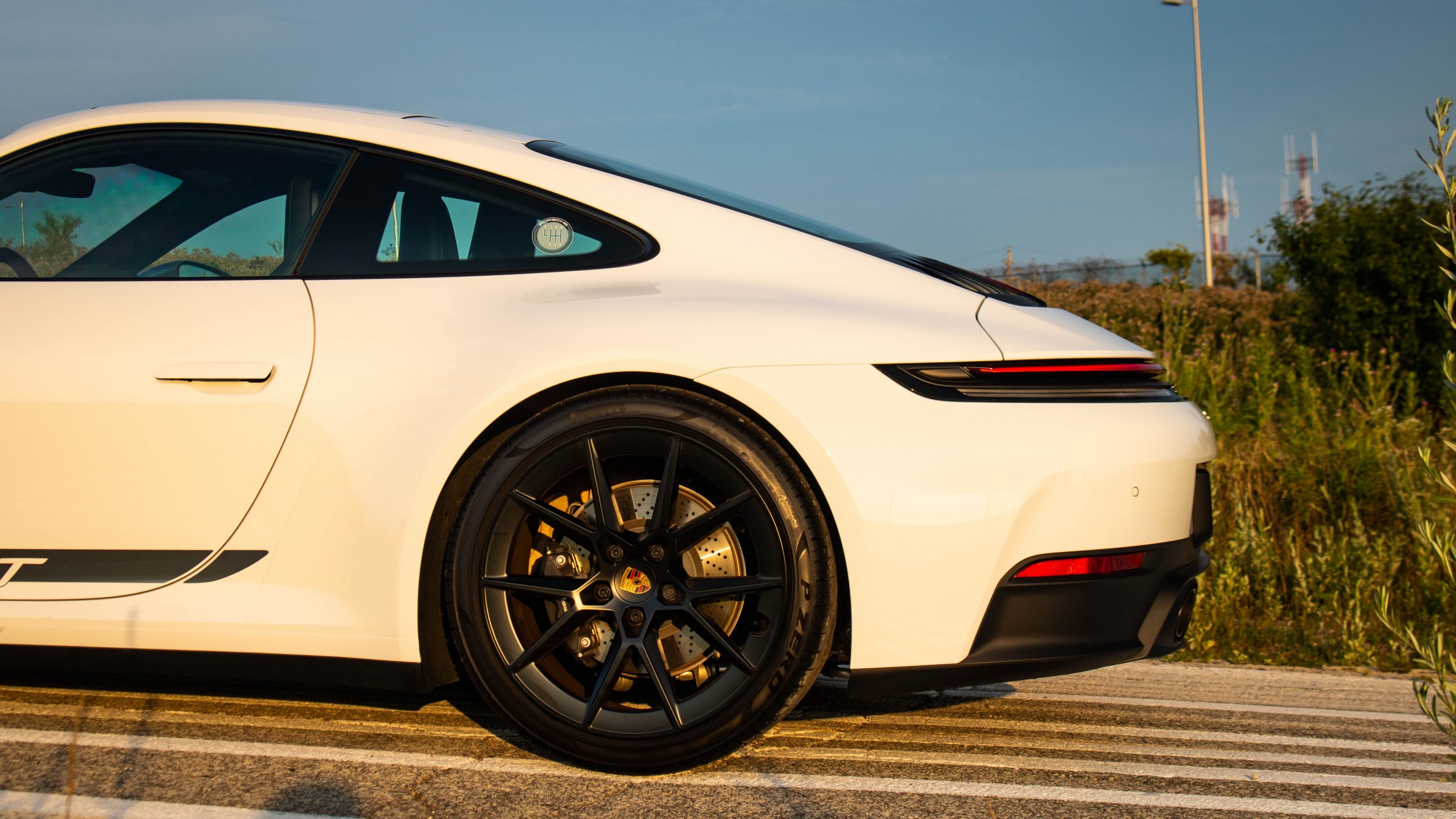
Then there’s the price gap, which is hard to ignore. North of the border, a 911 Carrera T starts at $152,150 including freight, and my tester was optioned up to $167,150. In America, the equivalent figures come out to $146,050 and $158,900, respectively. Not inexpensive, but a 911 has always been a luxury machine. Meanwhile, the 911 Carrera GTS starts at $185,850 Canadian, and my tester was optioned up to $217,310 in loonies. The starting price in America is $178,250, and $205,720 as-equipped. Assuming zero-option base specs, you’re looking at a $32,200 delta in America and a $33,700 delta in Canada.
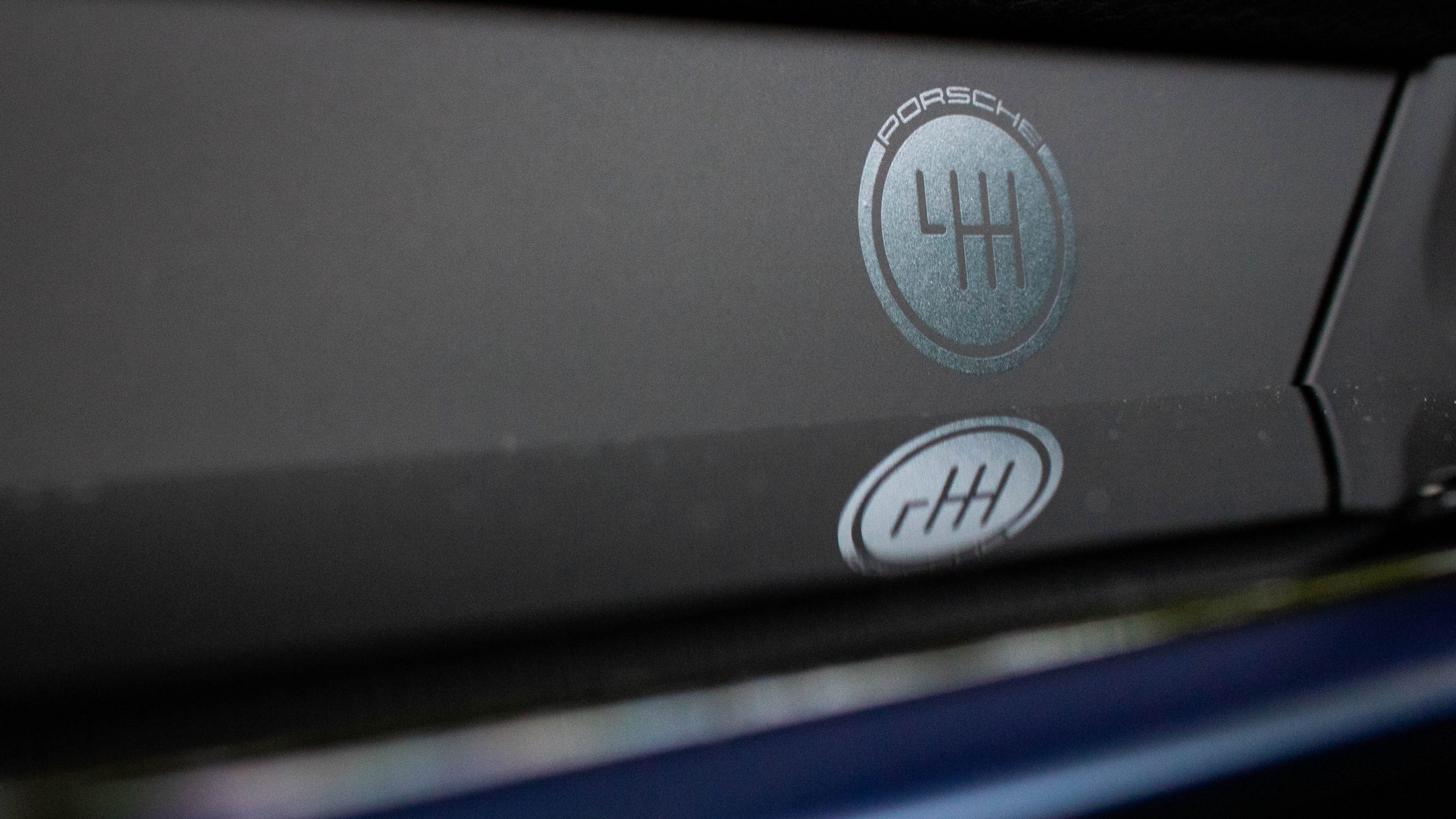
However, beyond that, you can’t help but get the feeling that Porsche’s astoundingly effective T-Hybrid tech is here to stay, while the manual gearbox is an endangered species. Who knows when regulations will bump it off? So, if you want the latest-and-greatest, the 911 Carrera GTS T-Hybrid is everything you hoped. However, if you’re a bit of a purist, the 911 Carrera T is pretty much guaranteed to satisfy. Isn’t it nice to have options?
Top graphic image: Thomas Hundal
Support our mission of championing car culture by becoming an Official Autopian Member.






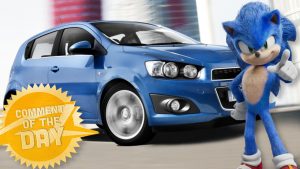
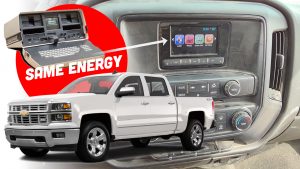
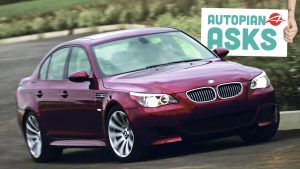
I drove a 911 GT3 at a track experience recently and I am smitten. Although similar platform with entirely different kit, that thing redefined my dream car at age 42. I imagine the Carrera T is still incredibly competent on track and has limits I would likely never come close to reaching. I hope you had a blast driving those two Thomas.
I m pretty good with math. Loonie to US$. 30%. Yet. 911 pricing on that one is only 5% less. Where is the nearest Porsche dealer to Buffalo NY?
When I was in sixth grade, back in 1969, a neighbor down the street bought a 912. He gave me a ride in it and it felt pretty fast to 12-year-old me. Modern Porsches make me wish for days gone by. I don’t have the driving skills to fully exploit a modern Porsche or any other exotic car. I love stick shift cars. I don’t currently drive one.
I think I’m too big to fit comfortably in a Miata, but maybe I should try, one last time.
This story mostly made me like the 718 GTS even more. Carrera T is now the 911 to buy, at least for my preferences. But only because the 718 GTS is dearly departing.
I wonder how much of the squishy brake feeling on the hybrid is due to regen braking? It is definitely something I have had to get used to in my EX30. I have had a few anxious moments where I need to brake pretty hard and the pedal doesn’t feel like it is responding properly so there is a quick flash of panic until all my other senses realize that I am still slowing adequately.
Still with the piano black? Well, that rules them both out for my next car. 😉
That wood shift knob is lovely. But 911s are so heavy and complex now that they no longer stand apart from other high-end sportscars (in my moot non-911-tax-bracket opinion). I’d rather have a late air-cooled or early water-cooled version, were I going to undertake Porsche ownership. Which, at this stage of life, I’m not.
Wood shift knobs and plaid seats are tempting in most any car though.
I love the wood shifter SO much. It was one of my favorite design details on the Carrera GT and I’m glad to see it replicated here.
Good review . I have had Porsches for decades but mostly the most edgy and uncompromising ones – the GT3RS which are very much an acquired taste only really happy on a track or the autobahn
.Yet sny 911 is a driver-focused car and you are right about the 18-way seats. I have lightweight buckets in some cars but 18 ways in my 991RS which is my first choice for road use as a result.
No photo of those plaid seats???
Another reason they might have dispensed with the 7th gear is being able to keep the shifts clearly apart as 7th adds another gate. It also reduces likelihood of downshifting too far.
My father in law has the 7 speed and it’s surprising how intuitive it is. I think there’s a speed lockout for 7th which helps make it feel more like a 6 speed with a cruising gear.
Oh, that’s right! I completely forgot Porsche already had a 7-speed. I don’t know, then.
Also, I expect the electric motor takes on a lot of the cruising duty. I’m not sure how that meshes with the transmission.
That interior is quite underwhelming for a vehicle of that price. It looks like a Hyundai. I’m not sure if that’s an insult to Porsche or a compliment to Hyundai.
My name for the new, smaller PDK lever is “the dingus.”
Let’s try to make it official.
I’m aware they reduced the size to free up space in the center console for the other things, but it still… looks so out of place. It’s a dingus in my eyes, and always will be.
Am I the only person to realize Porsche makes the 911 and that is also the emergency number for help? Isn’t that like calling your knew car model the ” it will fail quickly and explode”
Porsche did it first.
I’m not one to do the whole, “You could buy X for this price” thing, but is this car really worth twice as much as a C8? I actually really want to know.
Close to the border pick one out go south of the border give them directions and get it for half price and a new paint job
In short, maybe. Without getting into how the C8 Stingray drives, it seems to lose more value per year as a dollar amount than an equivalent 911, and a lot of people have a hard time making a car without even occasional-use rear seats their only car. If you like the way both drive, it all depends on what you value, what you use it for, and whether you’re willing to trade a low purchase price for historically stronger resale value.
Depends upon the severity of your 911 obsession. To me personally, it’s definitely worth twice as much as a C8, but when you take emotion out of the decision, then you’ll likely come to a different conclusion.
To me, a Corvette isn’t particularly special. Unless it’s a ZR1 or something, it’s just a Chevy. C8s are very common in my neck of the woods – I can hardly leave the house without seeing at least one, whereas 911s are a much rarer sight. Plus, the 911, while obviously more expensive, is actually going to be worth a decent amount in another 10 years. A regular C8 likely will not. At least if previous depreciation curves are anything to go by.
Regular C8s still have a floor north of $50K after 5 years, even for cars with a $6X,XXX sticker.
C7s haven’t hit their cheap stage yet and we are more than a decade in.
I think this talking point is out of date. 911s are always going to cost more than a same year Corvette, but they start from a much higher MSRP. Both are slow depreciators but the percentage per year can’t be far off.
I’m not sure how much more C7s are going to drop.
The interior was a huge step up over the C6, never mind C5. The Comp. seats alone are a big deal. In a C6 Z06 I had to use my knees to brace to keep myself off the door and transmission tunnel — and before anyone mentions aftermarket seats, those don’t have SRS airbags.
That far better interior is a huge part of C7 residuals.
That’s fair, and to be honest, I know a lot more about the second hand 911 market than I do about the second hand Corvette market. My knowledge of used vettes is primarily based on fairly cursory glances at the usual used car sites.
I have driven every Corvette since the C4 in anger, and near all variants.
I like Corvettes.
I respect Corvettes.
I will always say that they are great value for money.
… yet I’ve never bought one. C6 Z06 came closest, but I didn’t.
The devil is in the details, and really, the detail engineering.
Porsche is top-shelf driver ergonomics (I’ve done 14-16 hour days in ’em!) with rare exception , but where the detail engineering pays off is the unflappable confidence. I always know how much more I can push, and how close I am to the limit, and when I hit it, it’s extremely communicative. In a Corvette I have a good idea of where I am, but not to where I can try to get every inch out of a corner, or every foot before a braking zone, or every mile an hour out of a chicane. I couch myself far more in the Corvette,
Now, I could drive a Corvette for far, far longer to learn where those limits are by overstepping them unexpectedly. Yet despite thinking I know where they are, I still overstep them at times. Yet I don’t have to do that in a Porsche. The Corvette is a lot more work, to get the same lap times, despite more power.
The Porsche “just does it.” That’s what sold me on them.
Though credit to McLaren on steering feel. They’re the benchmark there right now.
— —–
With that said, C6 Z06 and C7 Gran Sport are the ones I like most.
The LS7 will always be one of my favorite V8s. Especially with dump valves.
Yes.
The T is such a sweet spot in the 911 lineup. Sure it’s not as luxurious as some other 911s, but for me, a 911 is best when it’s stripped to the basics. Three pedals, RWD, limited options, oh, and plaid seat inserts. I love the plaid seat inserts. They’re a bit of a stretch for me financially at the moment, but the 911 T is at the very top of my list when it comes time for a new non-daily.
Oh, and the other reason to pick the T over the hybrid (for me at least) is the Mogwai-like care and feeding requirements for the hybrid battery.
absolutely this. No interest in buying one loaded up with luxury options- give me a stick shift and some heritage styling.